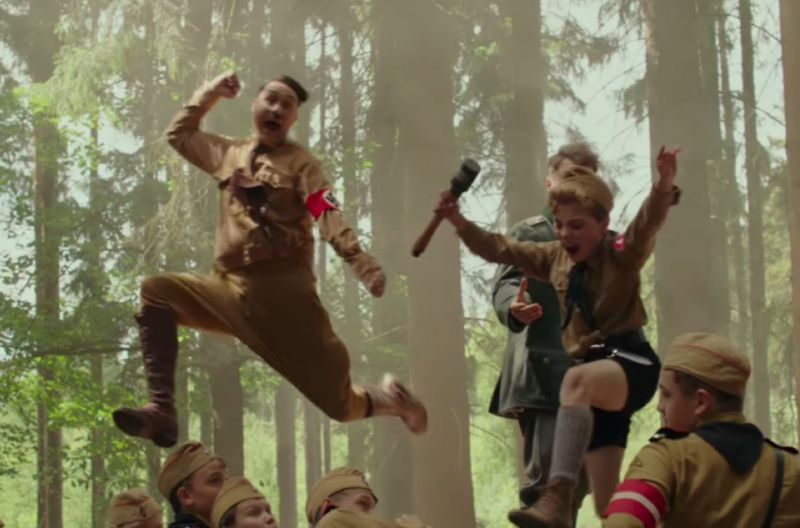Review: Jojo Rabbit walks a fine line between humor and heart

Enlarge / Taika Waititi plays a young Nazi boy's imaginary friend, Adolf Hitler, in his new film Jojo Rabbit. (credit: YouTube/Fox Searchlight)
There's a very fine line between successfully mining Hitler and Nazi Germany for laughs and distasteful "jokes" that land with an ignominious splat. Director Taika Waititi navigates that treacherous tightrope perfectly in Jojo Rabbit, his bittersweet new dramedy based on the novel, Caging Skies, by Christine Leunens. The film will definitely make you laugh, but be forewarned: it may also break your heart.
Waititi's film defies easy categorization. Let's just call it an absurdist dramedy. It's being touted as a satire, and the marketing has emphasized the humorous elements, but the WWII setting also calls to mind darker fare like Quentin Tarantino's Inglorious Basterds (2009). Several critics have compared it to the Oscar-winning 1997 Italian film, Life Is Beautiful, directed by and starring Roberto Benigni as a Jewish father shielding his son from the horrors of a WWII concentration camp by pretending it's all an elaborate game.
Jojo Rabbit falls somewhere in between. It has more warmth and heart than the former and more of a savage edge than the latter. And while Waititi cites Terrence Malick's Badlands (1973) and the 1988 black comedy Heathers as influences, tonally, Jojo Rabbit also owes quite a lot to Waititi's charming 2016 film, Hunt for the Wilderpeople.
Read 11 remaining paragraphs | Comments